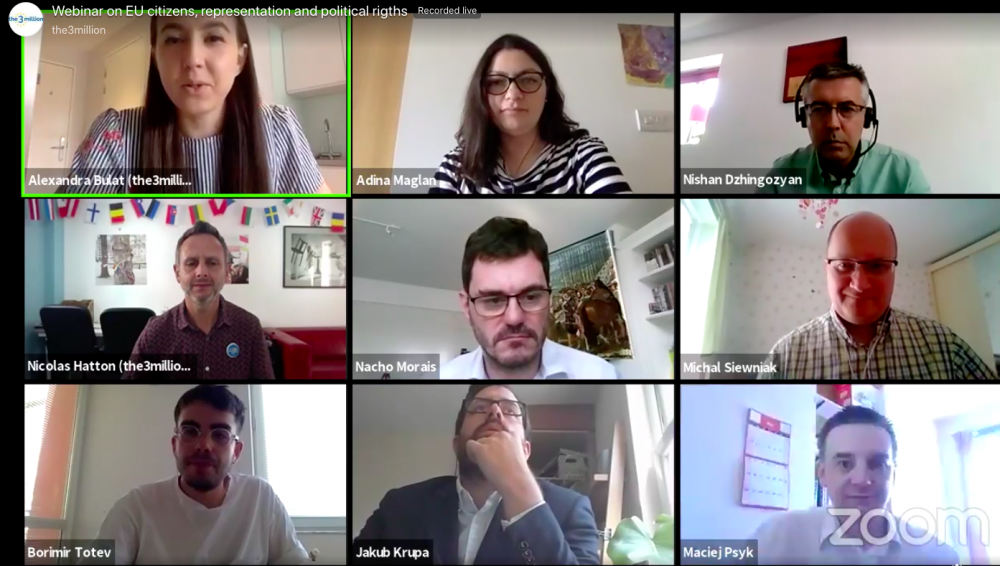Borimir Totev: Political rights and the representation of East Europeans in UK politics.

Given my work with the GLA Citizens' Led Engagement Programme and other projects at the local level in London with the London Bulgarian Association, earlier this summer, amid the COVID-19 pandemic, I was invited to be one of the speakers at the online panel: Where are EU residents' voices in UK politics and what can we do to increase EU citizens' participation in politics?
(You can watch a full recording of the event here: https://www.facebook.com/1073134609388933/videos/596688241234174)
The event was organised by the3milllion, a grassroots organisation of EU citizens living in the UK, in partnership with the East European Forum, an organisation connecting over 50 smaller organisations working with East Europeans in London.

After a welcome from the organisers, including Nicolas Hatton (CEO, the3million), Alexandra Bulat (Young Europeans Manager, the3million) and Nishan Dzhingozyan (Managing Director, East European Forum) we began the panel discussion. Members of the panel were East Europeans involved in politics, local authorities and/or with community organising and projects. In addition to myself, we heard from 4 other speakers: Adina Maglan (CommUNITY Barnet), Mihai Bica (Roma Support Group), Nacho Morais (Chair, West London for Europe) and Michal Siewniak (Polish local councillor and Trustee of New Europeans UK). The panel discussion was chaired by Jakub Krupa, Polish journalist. We spoke about specific communities by nationality, during which the contribution of Bulgarian Londonders and the past activities of the London Bulgarian Association were given voice. Others spoke more broadly about EU citizens or other non-British residents. We used a broad definition of representation - not only speaking about EU citizen councillors or other types of politicians, but also including other types of residents' representation, like forms of community engagement the London Bulgarian Association organised throughout 2017-2019 on two Mayor of London funded projects.
In the second part of the event, when the Zoom live stream ended, we entered the consultation phase during which all attendees discussed and shared best practice on the following two themes:
- The Problems. What are the barriers to political representation of EU citizens in the UK?
- The Solutions. What can we do in practice to facilitate political representation of EU citizens in the UK?
Feedback had one thing in common: the vast majority of consultation participants felt unrepresented or underrepresented in UK politics.
Last month (September 2020), coinciding with London Voter Registration Week during which there is more public conversations about democratic engagement, the3million published a short report based on July event and further conversations.
The consultation identified various four main themes:
- EU citizens have unequal and insufficient access to information about their democratic rights in the UK.
- EU citizens feel unrepresented or underrepresented in UK politics.
- The local authority workforce does not reflect the demographics of the EU citizen local population.
- Limited resources for political education and community organising.
(You can download and read the full report here:
In view to the future, the 2021 local elections are a key event to mobilise EU citizen voters and to make the case for residents’ democratic rights. So make sure you register to vote! As a Bulgarian citizen with a London address you have the right to vote.
One of the key report recommendations applicable to the future work of the London Bulgarian Association states that:
“Improving participation and representation is a long term project. To speed up the process of EU citizens’ political integration, local authorities, charities, associations, community groups (including informal) and other stakeholders need to build an infrastructure of collaboration and long term strategies.”
So, what are your views on the extent to which EU citizens are represented in UK politics and what do you think should - or could – change?
Borimir Totev

